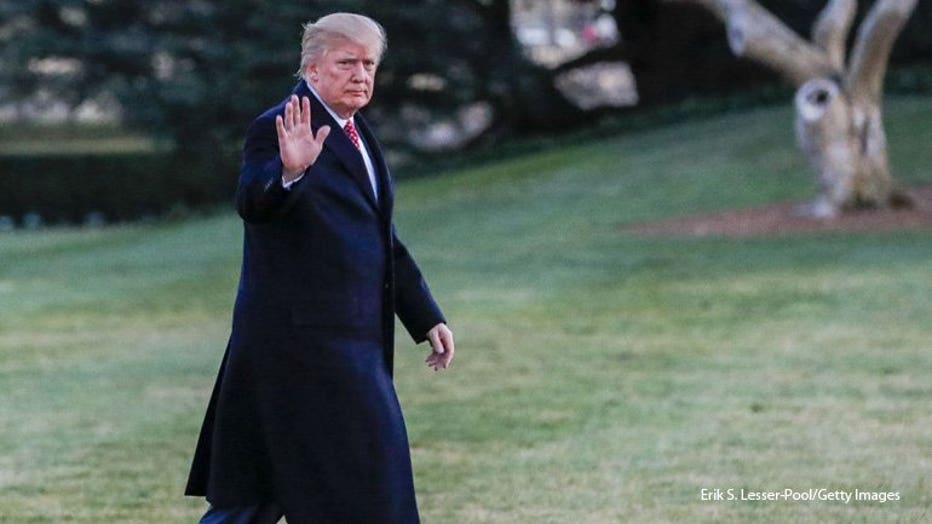Travel ban 2.0: President Trump's new order sees immediate pushback


By Meg Wagner
New order, same backlash
President Donald Trump on Monday unveiled his second travel ban targeting Muslim-majority countries — an executive order that, while slightly less aggressive than the first, still faced immediate backlash.
Just moments after the White House unveiled the updated order, New York Attorney Eric Schneiderman said he’d be willing to challenge it in court.
“I stand ready to litigate — again,” he said, alluding to his lawsuit against the first ban.
Under the new order, Iraqi citizens were not included in the list of travelers barred from entering the country. The Trump administration said it removed Iraq because it’s a crucial ally to the U.S. in the fight against the Islamic State militant group.
But the new 90-day travel ban is expected to keep citizens from Iran, Libya, Syria, Somalia, Sudan, and Yemen out of the country — just like the first order tried to do.
The revised order also guarantees that green card-holders — foreign citizens with legal authorization to work and live in the U.S. — will not be affected by the ban. The first order did not include that promise, and as a result, some legal U.S. residents traveling abroad were detained at airports when they came back.
The new order still temporarily suspends the U.S.’s refugee program. The first ban blocked all refugees from all countries (not just the seven on the ban list) for 120 days, except Syrians, who were barred from the nation indefinitely. The new order removes the extra restrictions against Syrians and stops all refugees from entering the U.S., although it does not specify how long it will last.
During a Monday press conference, Secretary of State Rex Tillerson called the new order a “vital measure to strengthening our national security.” Attorney General Jeff Sessions and Secretary of Homeland Security John Kelly also delivered statements, but none of the three men took questions from reporters.
“We also know that many people seeking to support or commit terrorist acts, will try to enter through our refugee program,” Sessions said. “Like every nation, the United States has a right to control who enters our country and to keep out those who would do us harm."
The new order will go into effect on March 16.
Chaos at the airports and defeat in court
Trump signed his first travel ban executive order on Jan. 27, one week after he took office. The administration billed it as an anti-terrorism measure and claimed that it would help keep terrorists off of U.S. soil.
“This is not about religion — this is about terror and keeping our country safe,” Trump said in a statement.
The order, dropped on a Friday, caused a weekend of confusion and chaos at the nation’s airports. Travelers from the seven banned nations — many already in the air when Trump signed the order — were detained when they landed.
As the refugees, migrants and other non-U.S. citizen travelers waited in limbo inside airports, protesters converged outside. About 150 demonstrators gathered at John F. Kennedy Airport in New York City alone, and more rallied at airports in Los Angeles, Miami, Dallas, Oregon and other cities.
By Sunday night, many of the detained travelers had been released. But some refugees — including two Christian families from Syria — were sent back to their home countries.
At least two dozen lawsuits were filed against the travel ban. On Feb. 3, a federal judge in Seattle acted on one of those suits, issuing a nationwide restraining order that essentially banned the ban.
The Trump administration challenged the order, but an appeals court refused to reinstate the ban. It’s been in limbo ever since, with the administration vowing for weeks to release its revised version.
Swift pushback, but no tweets
The new order will likely be harder to challenge in court, since it ensures that green card-holders won’t be affected. Many of the suits filed in the wake of the first ban centered on the lack of protections for legal residents of the U.S.
In rebuking the first ban, the appeals court discussed if the order violated U.S. constitutional protections of religion. But the judges did not decide the case on that basis — possibly paving the way for more lawsuits alleging that the ban stifles freedom of religion by targeting Muslim travelers.
The American Civil Liberties Union was quick to condemn the second ban as anti-Muslim.
“President Trump has recommitted himself to religious discrimination, and he can expect continued disapproval from both the courts and the people,” Omar Jadwat, director of the ACLU’s Immigrants’ Rights Project, said in a statement issued just moments after the ban was signed.
The one person who hasn’t weighed in on the new order? Trump himself.
While the the first ban was in effect and wending its way through the courts, Trump frequently tweeted about it: he defended the ban as an issue of national security, attacked the Seattle judge who blocked it, and vowed to appeal the appeals court’s decision. But so far, Trump’s Twitter account has been mum on the second order.

